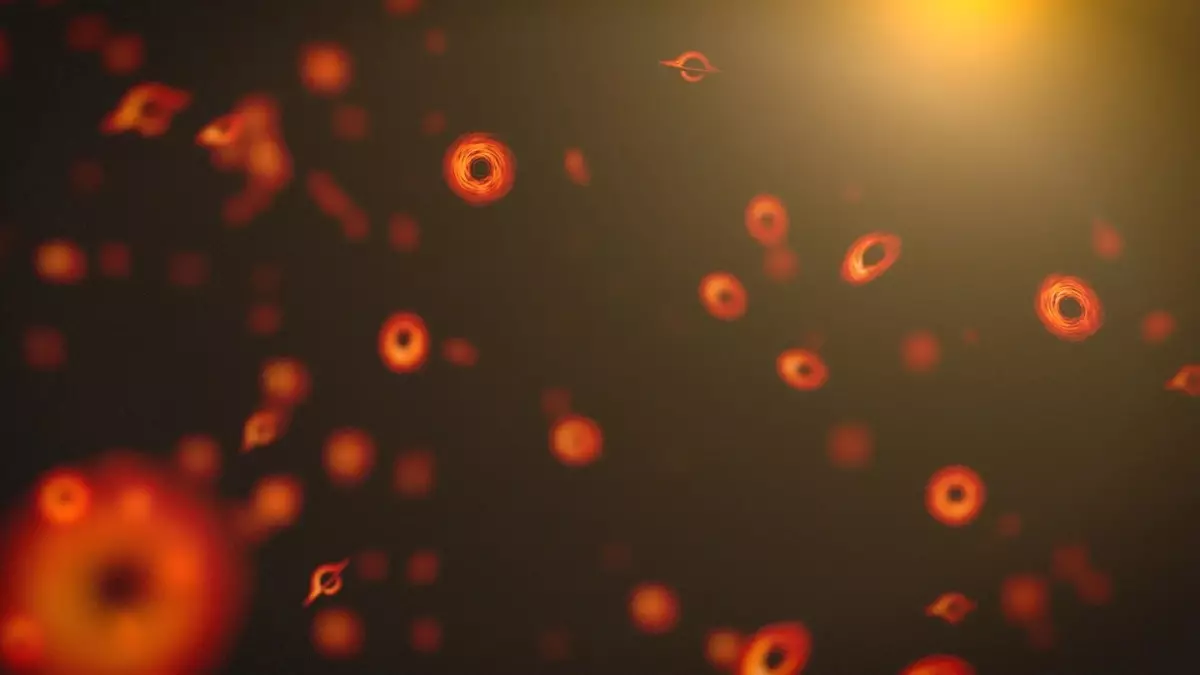Recent research in the field of astrophysics has illuminated the potential presence of primordial black holes (PBHs) within our solar system. The implications of such findings could revolutionize our understanding of dark matter—an enigmatic substance believed to account for about 85 percent of all matter in the universe. Unlike conventional black holes that typically arise from the gravitational collapse of massive stars, primordial black holes are theorized to have formed during the very early stages of the universe, in conditions of extreme density and temperature. These mini black holes are estimated to possess masses akin to asteroids while having sizes comparable to hydrogen atoms, which makes them exceedingly difficult to detect and study.
One of the most intriguing propositions emerging from these studies is the possibility that PBHs may exert gravitational influences on the orbits of planets and satellites. Dr. Sarah Geller of the University of California, Santa Cruz, emphasizes the hypothesis that the subtle variations in planetary orbits—often referred to as orbital wobbles—could be attributed to the gravitational pull exerted by these primordial black holes. This concept introduces a new lens through which we can examine the dynamics of our solar system and suggests that our understanding of celestial mechanics may require significant revision.
Armed with this hypothesis, Dr. Geller’s research team is embarking on an extensive modeling project aimed at exploring the gravitational effects of PBHs on our solar system. This meticulous approach could open pathways to understanding not just our immediate cosmic neighborhood but also the broader implications for the behavior of celestial bodies in the universe as a whole.
Meanwhile, the scientific community is actively pursuing novel methodologies to detect these elusive black holes. Insights shared by Dr. Sébastien Clesse and Dr. Bruno Bertrand propose observing satellite movements as a means to spot the gravitational impacts of PBHs. They suggest that these tiny black holes could cause minute fluctuations in satellite altitudes, which, if accurately measured, could lead to their identification. Existing space probes may already be equipped to gather the necessary data for this analysis, which may provide unexpected windows of opportunity for discovery.
However, skepticism remains among some experts regarding the detectability of such primordial black holes. Dr. Andreas Burkert from Ludwig-Maximilians-University Munich cautions that various astrophysical phenomena—such as solar wind and interactions with asteroids—could create similar effects, complicating interpretations of observational data. As a result, while the quest to find primordial black holes promises to be an exciting area of research, it is accompanied by significant challenges regarding the soundness of detection methods.
Despite these challenges, the recent studies present significant steps toward understanding the elusive nature of primordial black holes and their potential role in elucidating the mysteries of dark matter. As researchers continue to develop innovative techniques and refine their hypotheses, the exploration of these miniature black holes may not only reshape our cosmic maps but could also provide pivotal insights into fundamental questions about the fabric of our universe. The journey to uncover the truth about primordial black holes is an exciting frontier in modern cosmology.

Leave a Reply